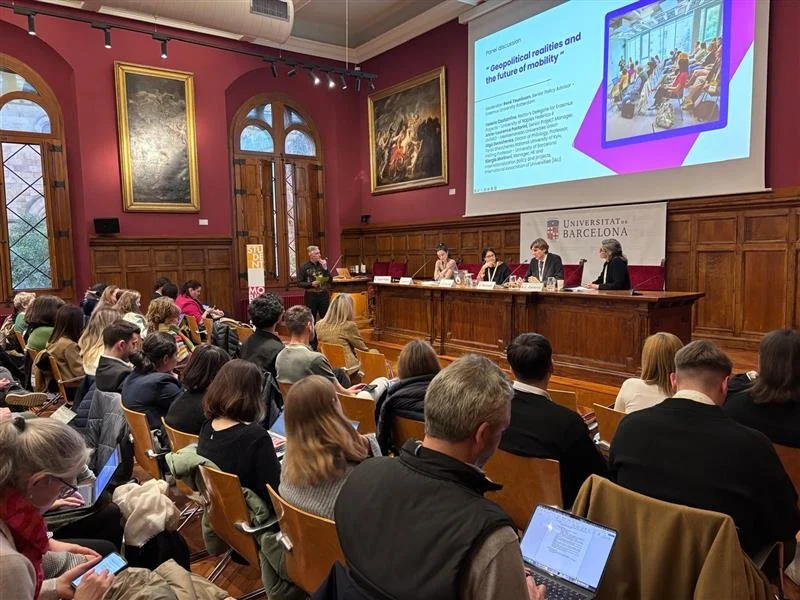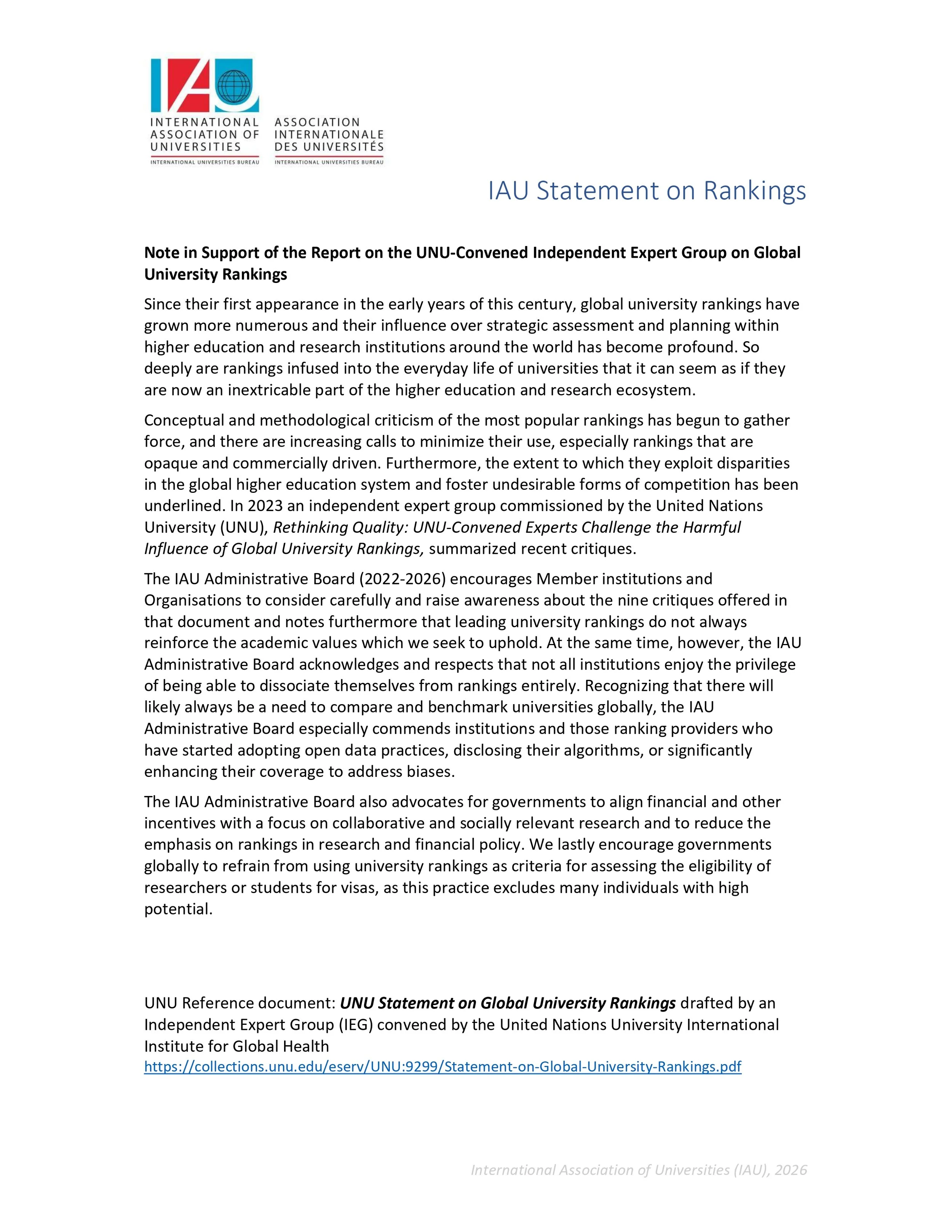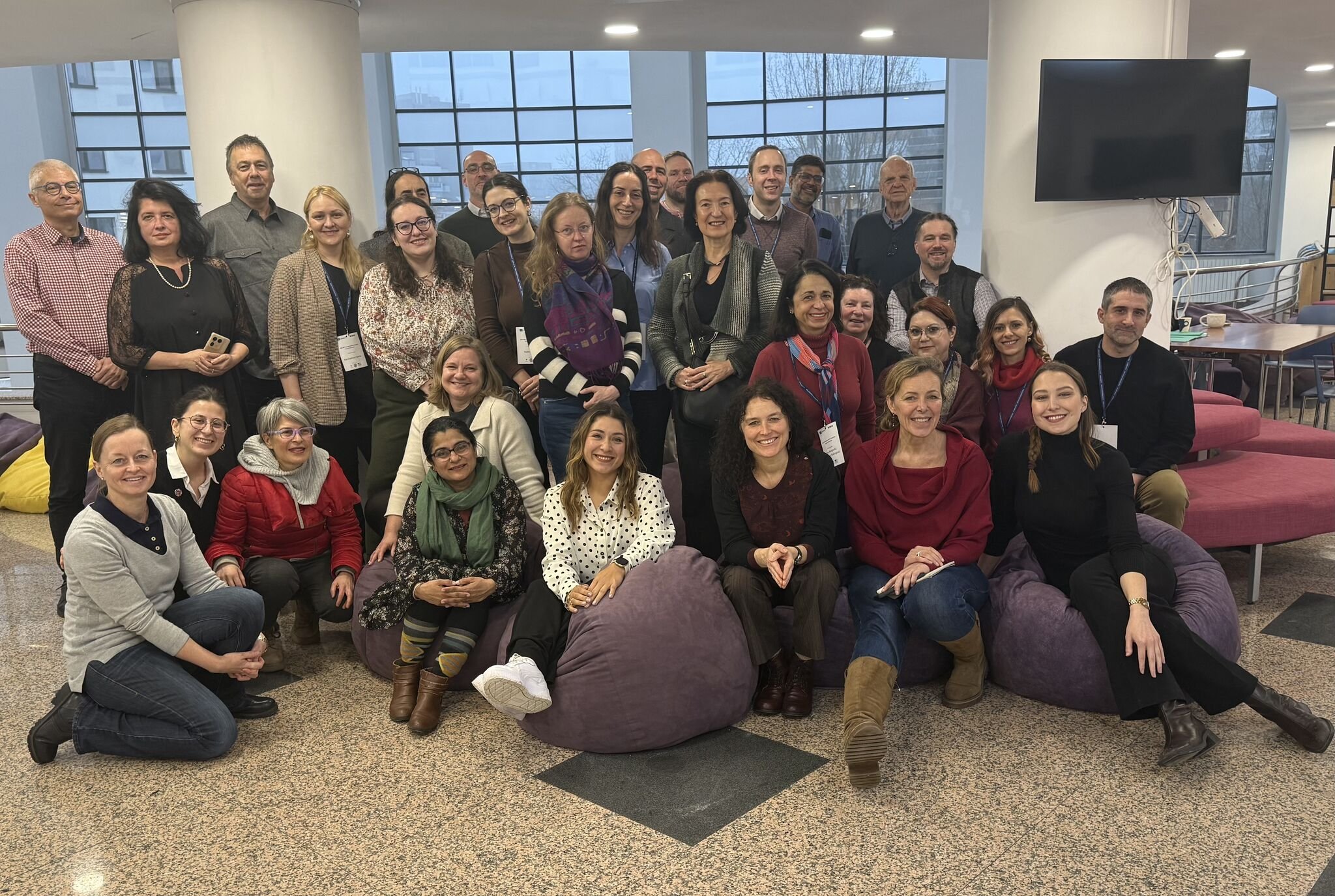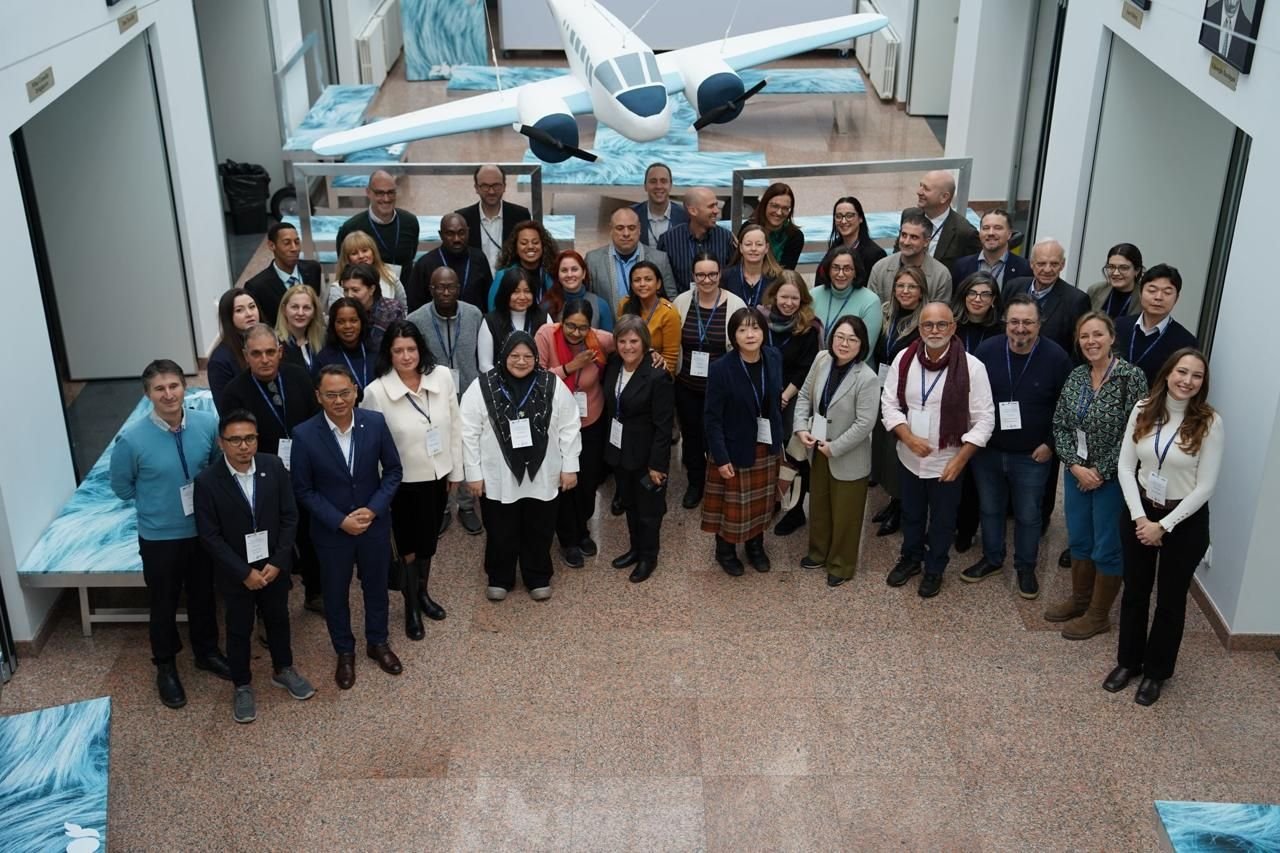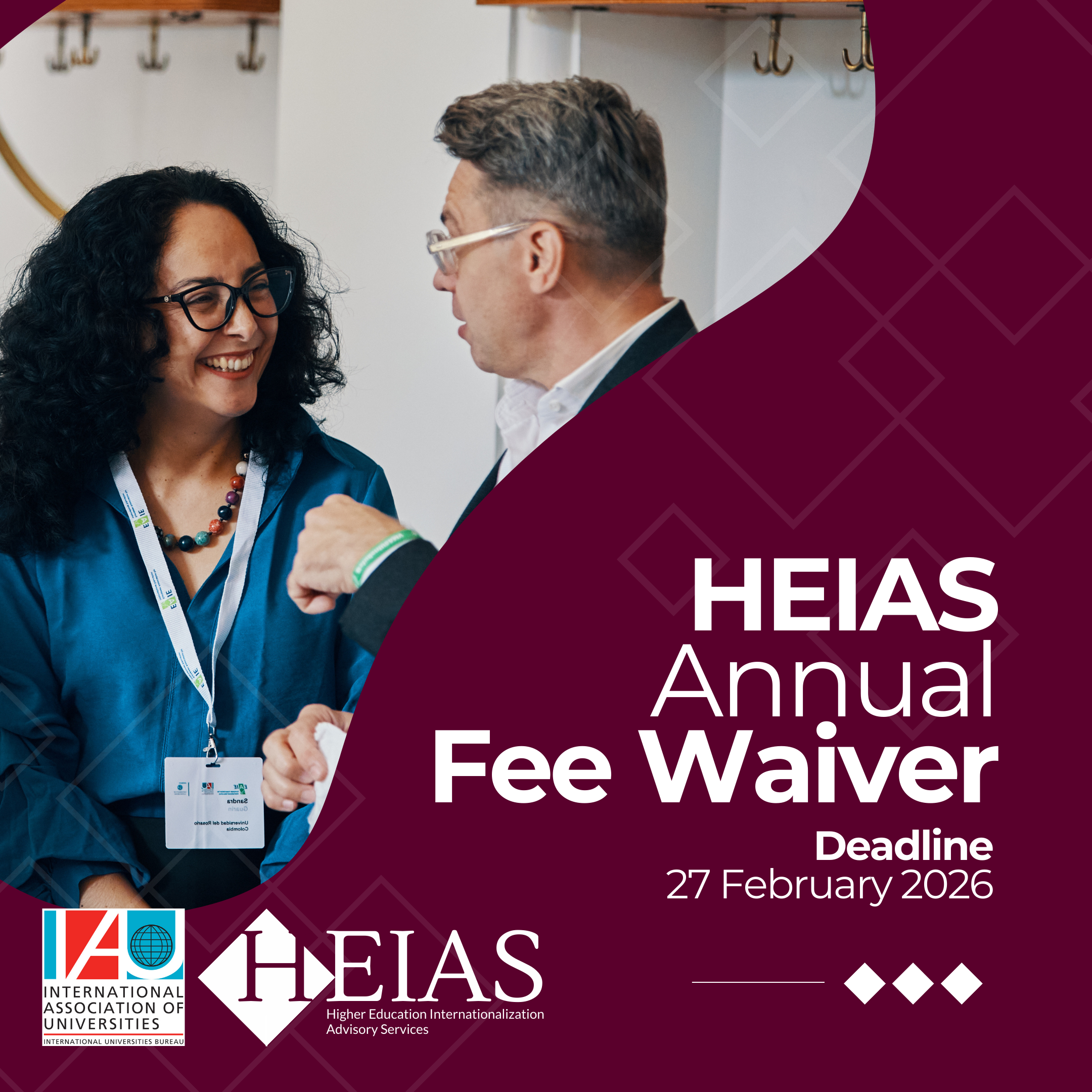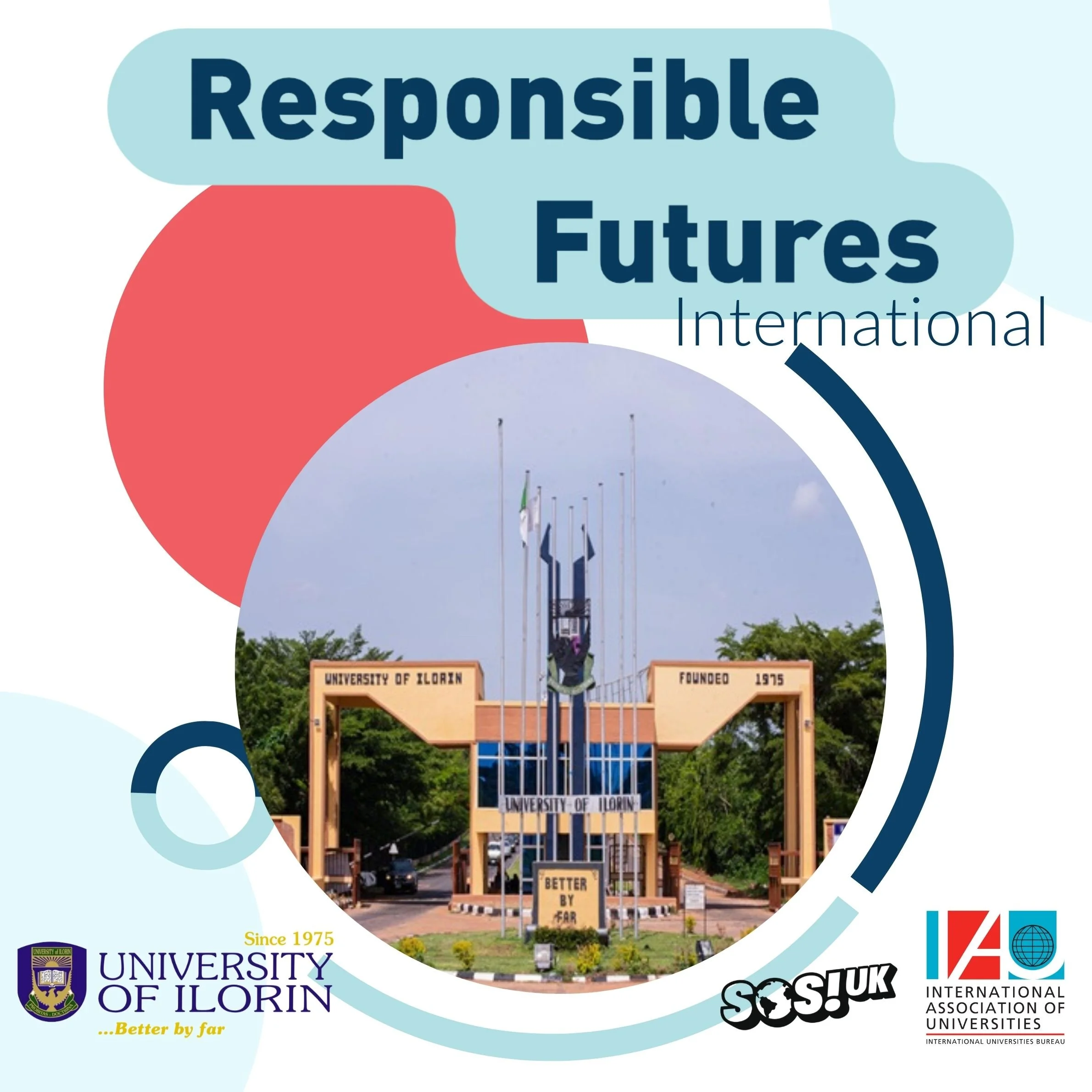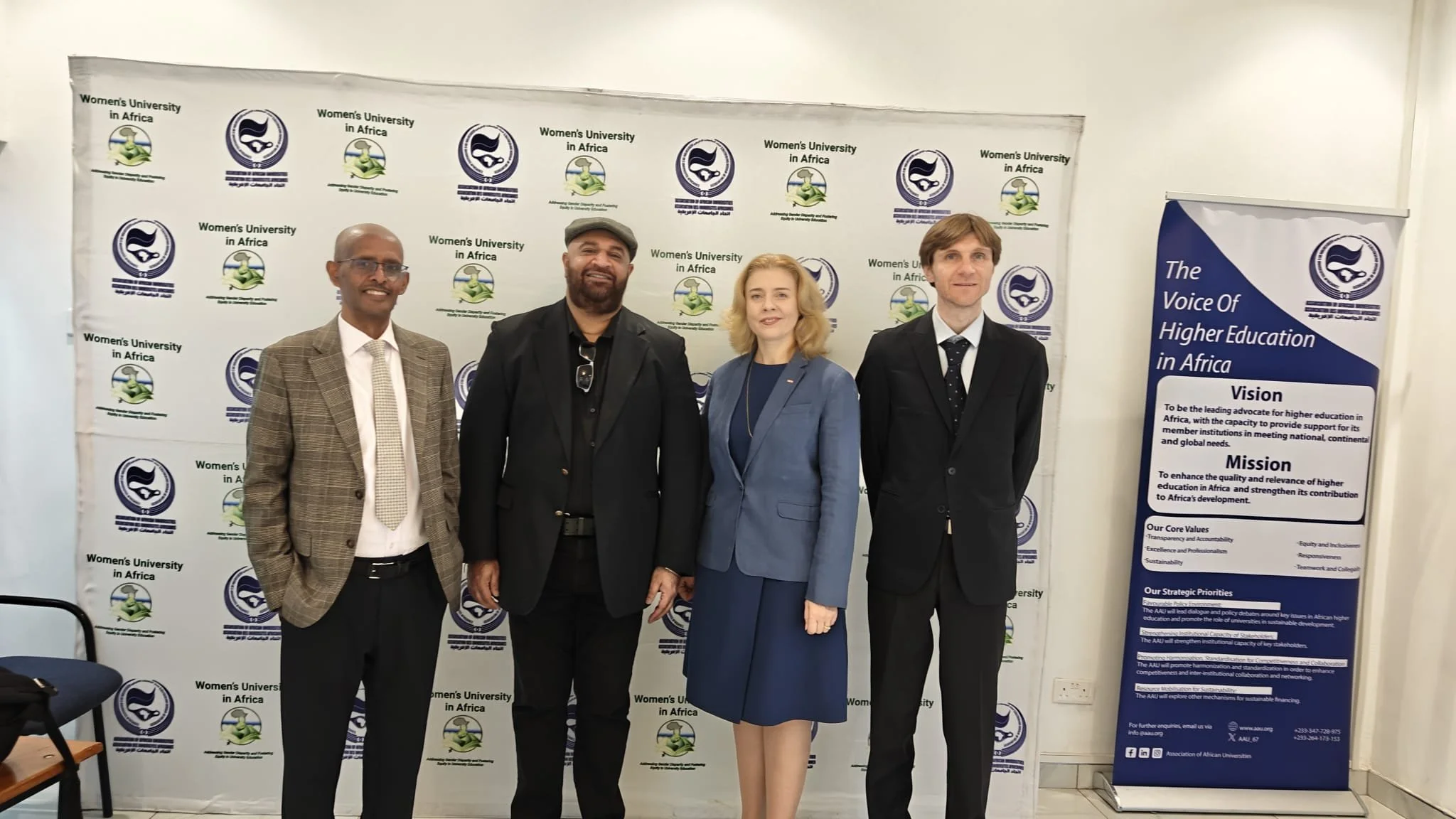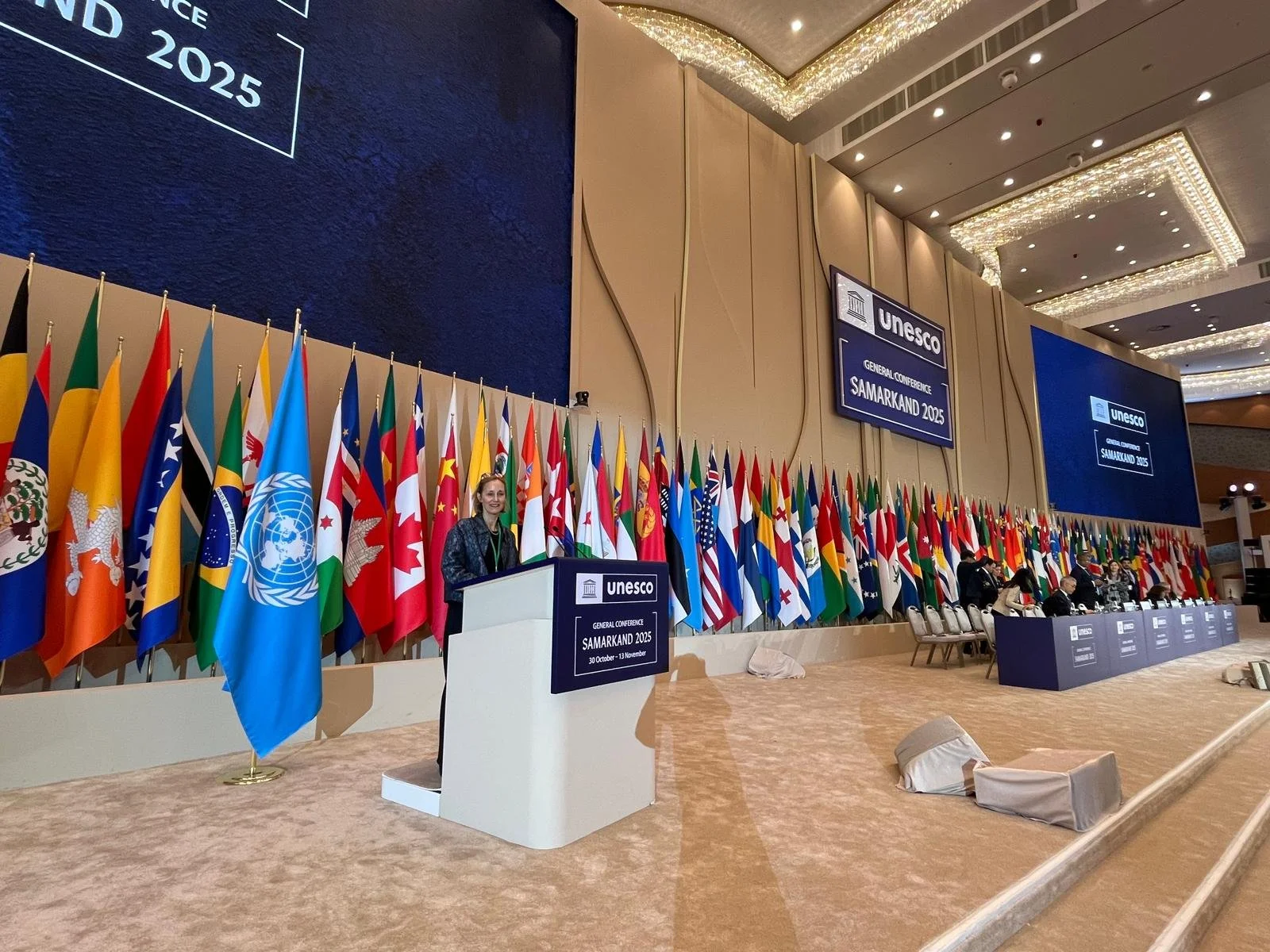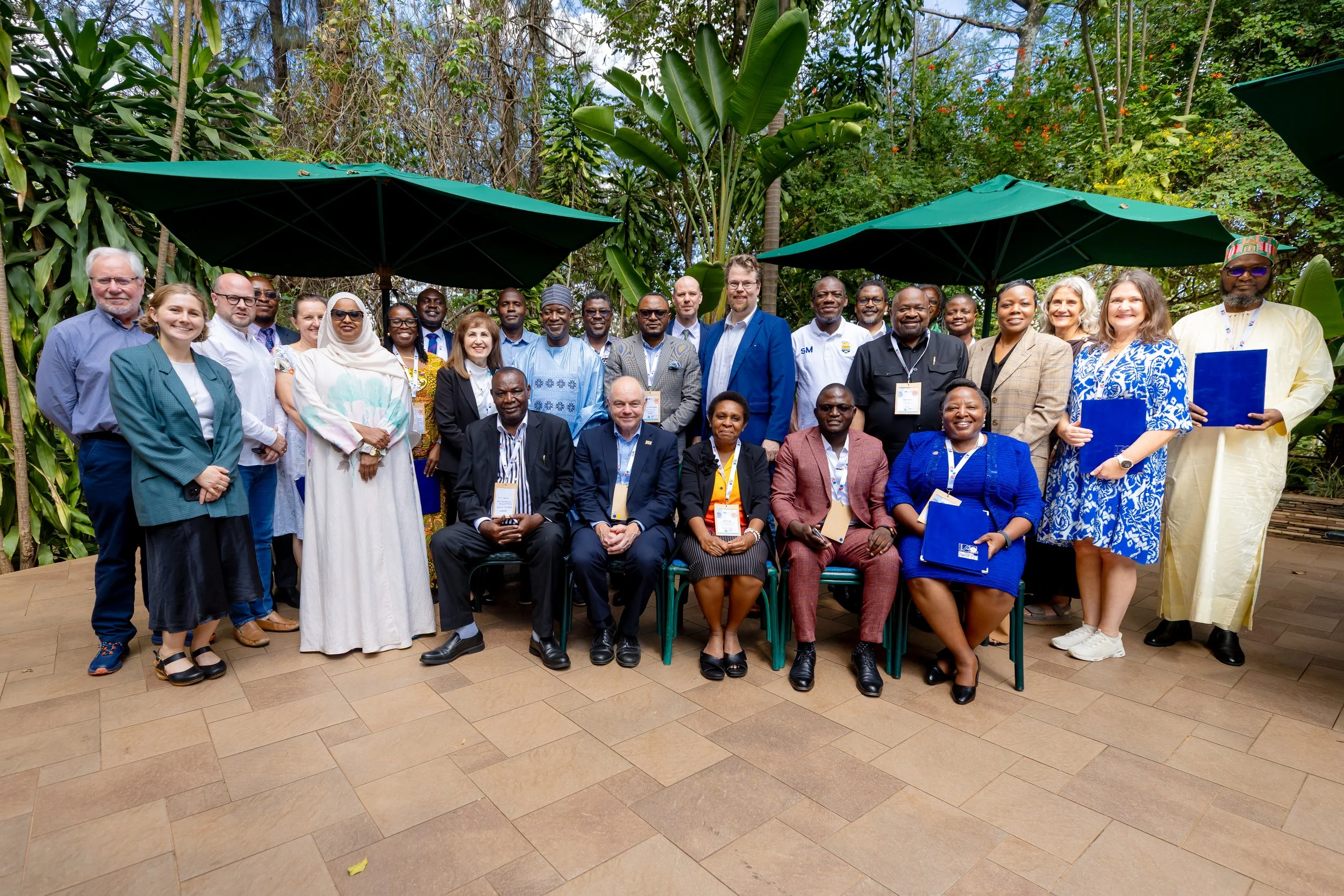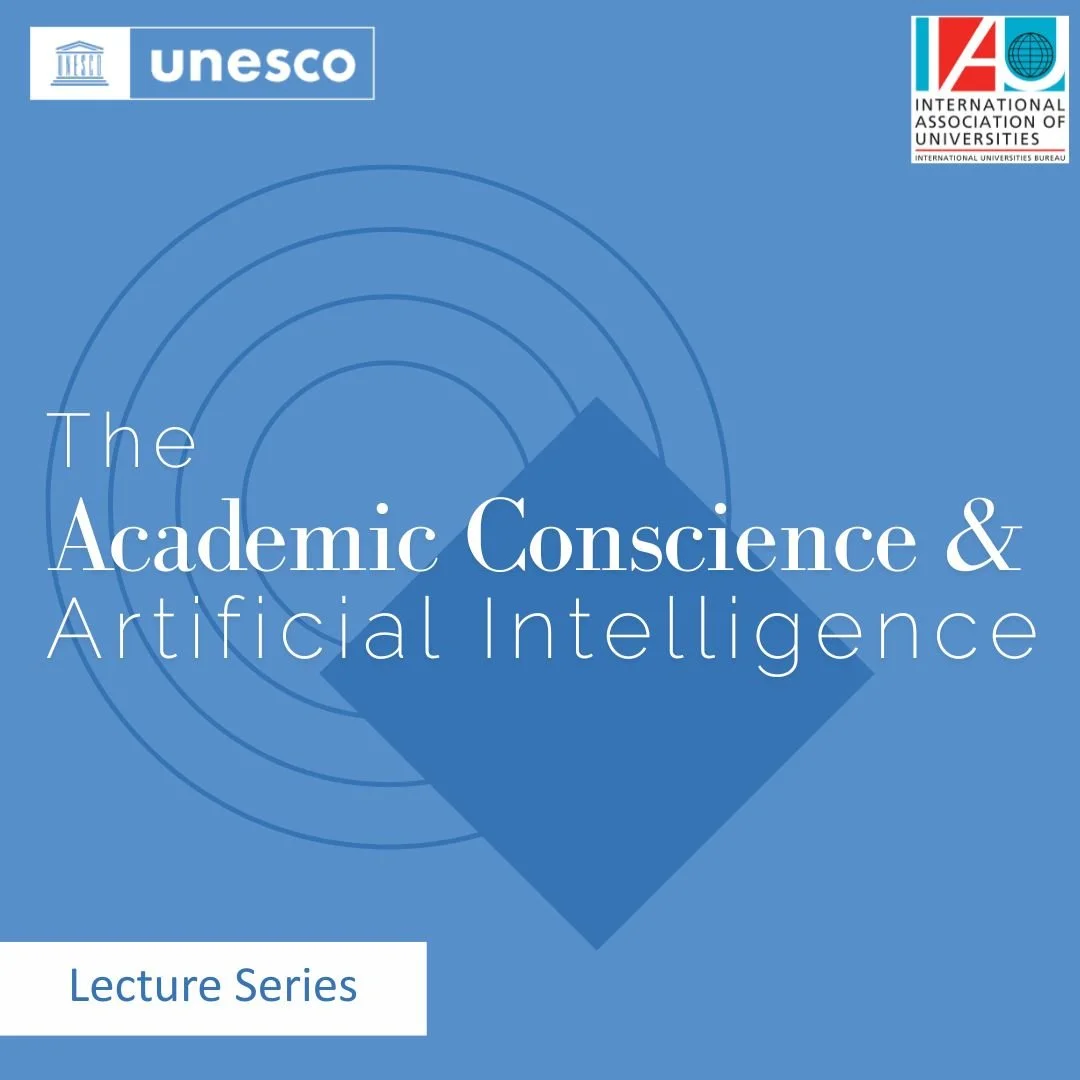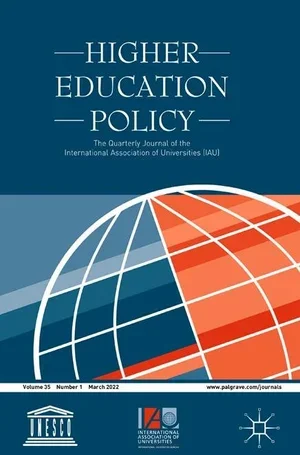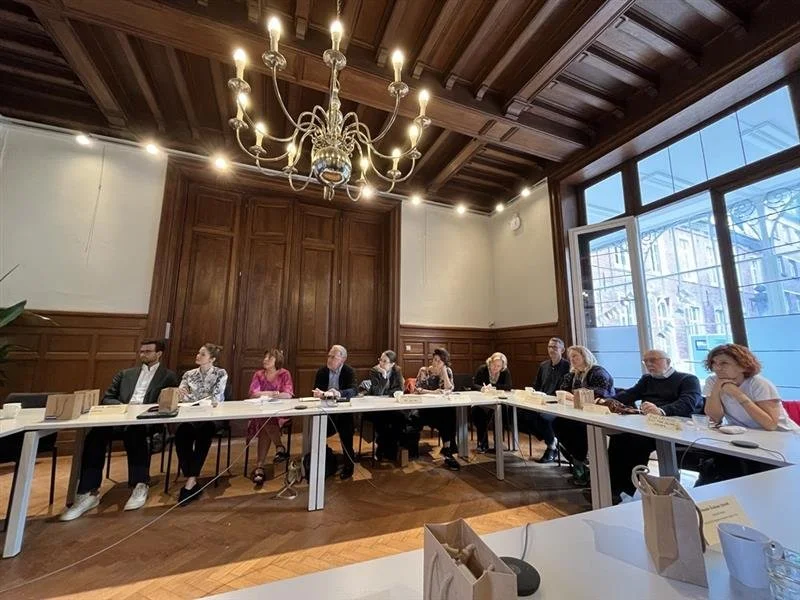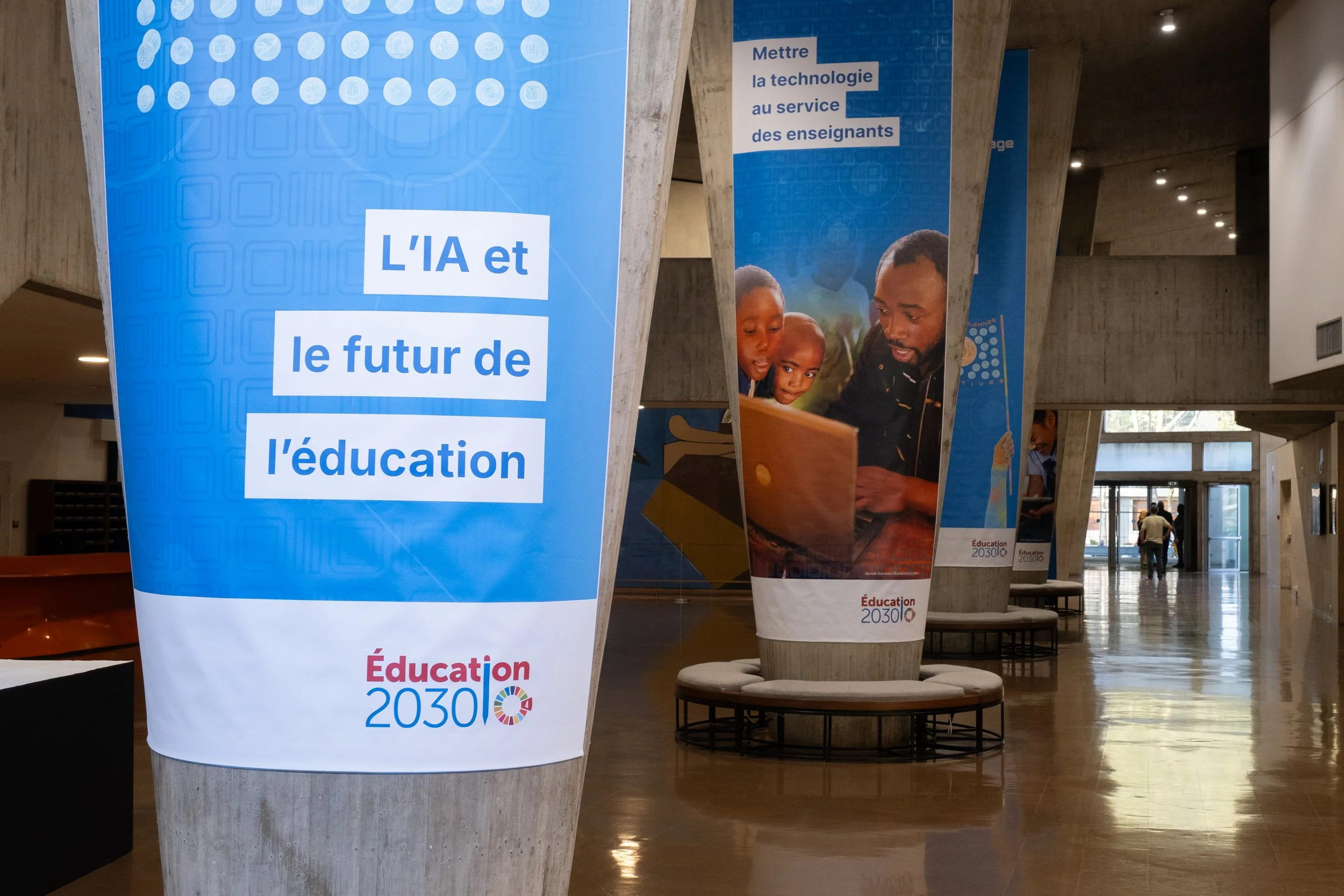News and
Opportunities
Read below news and opportunities to engage with the IAU. Search or filter news by subject matter.
The Student Mobility Summit 2025, hosted by the University of Barcelona, brought together higher education leaders , adminstrators, and stakeholders from across Europe to examine the evolving landscape of international student mobility.
This note, written by an expert group and approved by the IAU Adminsitrative Board, is in Support of the Report of the UNU-Convened Independent Expert Group on Global University Rankings
The International Association of Universities (IAU) was pleased to part in the UNESCO Education for Sustainable Development (ESD) Regional Meeting held from 21-23 January 2026 in Bucharest, Romania.
The IAU is pleased to announce that it will conduct the 4th Global Survey on Higher Education and Research for Sustainable Development in 2026.
Each year, the IAU reserves a dedicated budget to offer a HEIAS Annual Fee Waiver to one IAU Member institution. This Fee Waiver provides access, free of charge, to selected online modules of the HEIAS services, allowing institutions to strengthen their internationalisation strategy through structured, expert-led support.
We are thrilled to announce that our Member the University of Ilorin has been awarded the IAU Fee Waiver 2025/26 to participate in the Responsible Futures International Programme- becoming the first higher education institution in Nigeria to join the programme.
From 5-9 December 2025, the IAU - UNESCO CFIT III - Campus Africa Leadership Lab brought together university leaders from across Africa for an intensive programme dedicated to strengthening institutional leadership in a rapidly changing higher education landscape.
IAU and ISC are pleased to announce the signing of an MOU to strengthen their collaboration on Science, Higher Education and Society.
On 9 December 2025, the International Association of Universities celebrates 75 years of collective commitment to strengthening higher education worldwide.
On 19–20 November 2025, the International Association of Universities (IAU) conducted an onsite internationalization review at the Women’s University in Africa (WUA) in Zimbabwe within the framework of the IAU’s Higher Education Internationalization and Advisory Services (HEIAS) programme.
The International Association of Universities (IAU) is pleased to announce the opening of applications for the first in a series of four Study Visits, organised by the IAU in its role as an Associative partner of OpenEU.
The IAU HESD Cluster is seeking new IAU Member institutions to join its global community and actively contribute to several SDG-focused working groups. The following subcluster groups are currently welcoming new members:
It is essential for the global higher education community to reflect on what is at stake for higher education and international collaboration. What are the key challenges faced by universities worldwide, the tensions at play, and what are the aspirational paths forward? How can this time of crisis be leveraged to reposition the importance of international academic collaboration?
The IAU was pleased to participate in the 2025 Anniversary Conference of the Magna Charta Universitatum (MCU), held at King’s College London and hosted by the Magna Charta Observatory (MCO).
At a time when nationalism and division are rising, the call for Global Citizenship Education (GCE) has never been more urgent. The world is facing a wave of de-globalization: in many countries around the world xenophobia and political polarization are on the rise. As a result, we see increased tensions within and between countries, sometimes leading to violent conflicts that echo the darkest chapters of history.
The 6th IAU Global Survey on the Internationalization of Higher Education is now available in Spanish.
The International Association of Universities (IAU) is proud to actively participate in the UNESCO General Conference 2025. The IAU has a long-standing partnership with UNESCO and is committed to representing the global higher education community in international policy discussions.
The International Association of Universities (IAU) was pleased to take part in the 9th edition of the Conference of the Americas on International Education (CAEI), held from 15–17 October 2025 in San José, Costa Rica.
The IAU brings the Association of American Colleges and Universities (AAC&U) Public Statement on the Trump Administration’s “Compact for Academic Excellence in Higher Education” to the attention of the broader higher education community.
Hosted by Murdoch University from 3-6 November 2026, the IAU 17th General Conference event will feature a dynamic programme exploring emerging trends in higher education, drawing on diverse perspectives from all regions of the world.
The International Association of Universities (IAU) is pleased to announce the release of its latest publication: Internationalization of Higher Education: Insights into Equity, Diversity & Inclusion; Sustainable Development; and International Partnerships
Shaped by shifting political climates, economic pressures, technological disruption, and the evolving priorities of societies worldwide, the practice of building and sustaining global connections in higher education is as complex as it is vital. Today, institutions face these challenges within the broader context of a polycrisis — a convergence of global disruptions that make navigating the international landscape both more difficult and more urgent.
The International Association of Universities (IAU) was pleased to participate in the 2025 Annual Conference of the European Association for International Education (EAIE), hosted this year in Gothenburg, Sweden. Bringing together thousands of higher education professionals from around the world, the conference served as an inspiring platform to share knowledge, exchange ideas, and collectively reflect on the future of internationalisation in higher education.
The series will consist of six online episodes, with interpretation in English and French. Each episode will feature one keynote speaker presenting for 20 minutes, followed by a moderated conversation with selected discussants, and an open Q&A session with the audience. This format is designed to foster participatory dialogue and multi-perspective exchange across regions and disciplines.
This Higher Education Policy (HEP) special issue invites scholarly contributions that critically examine the promises and contradictions of open science. 'Contributions should critically engage with the ways in which financial interests, policy frameworks, geopolitical asymmetries, and disciplinary hierarchies shape current models of openness.
As part of its ongoing engagement in global and regional education policy dialogues, the International Association of Universities (IAU) participated in the recent meeting of the Council of Europe’s sub-group on higher education policy, a body working under the Steering Committee for Education (CDEDU). The meeting, held in Brussels and Leuven, brought together representatives and experts to prepare for the upcoming CDEDU plenary and to advance discussions on the future of higher education in Europe.
Trine Jensen, Manager of Higher Education and Digital Transformation, represented the IAU at UNESCO’s Digital Learning Week 2025. This year’s conference was themed around ‘AI and the future of education: Disruptions, dilemmas and directions’, which took place from the 2nd to the 5th of September at UNESCO headquarters in Paris, France.
From August 20 to 21, 2025, IAU Institutional Site Visit on Artificial Intelligence and the Global University Leaders Forum——Harnessing AI to Transform Higher Education was successfully held at the Changping and Haidian Campuses of Beijing Normal University (BNU). Leaders, experts, and scholars from 18 universities across 16 countries in Asia, Europe, Africa, and Oceania gathered in Beijing to engage in in-depth discussions on the transformation of higher education empowered by artificial intelligence and to examine relevant practical achievements. The Site Visit and the Forum was co-hosted by International Association of Universities (IAU) and UNESCO Chair on Artificial Intelligence in Education, Beijing Normal University, which marked the first implementation of the “IAU Institutional Site Visit” program in China and also the flagship cooperative initiative following Beijing Normal University’s official accession to IAU.

